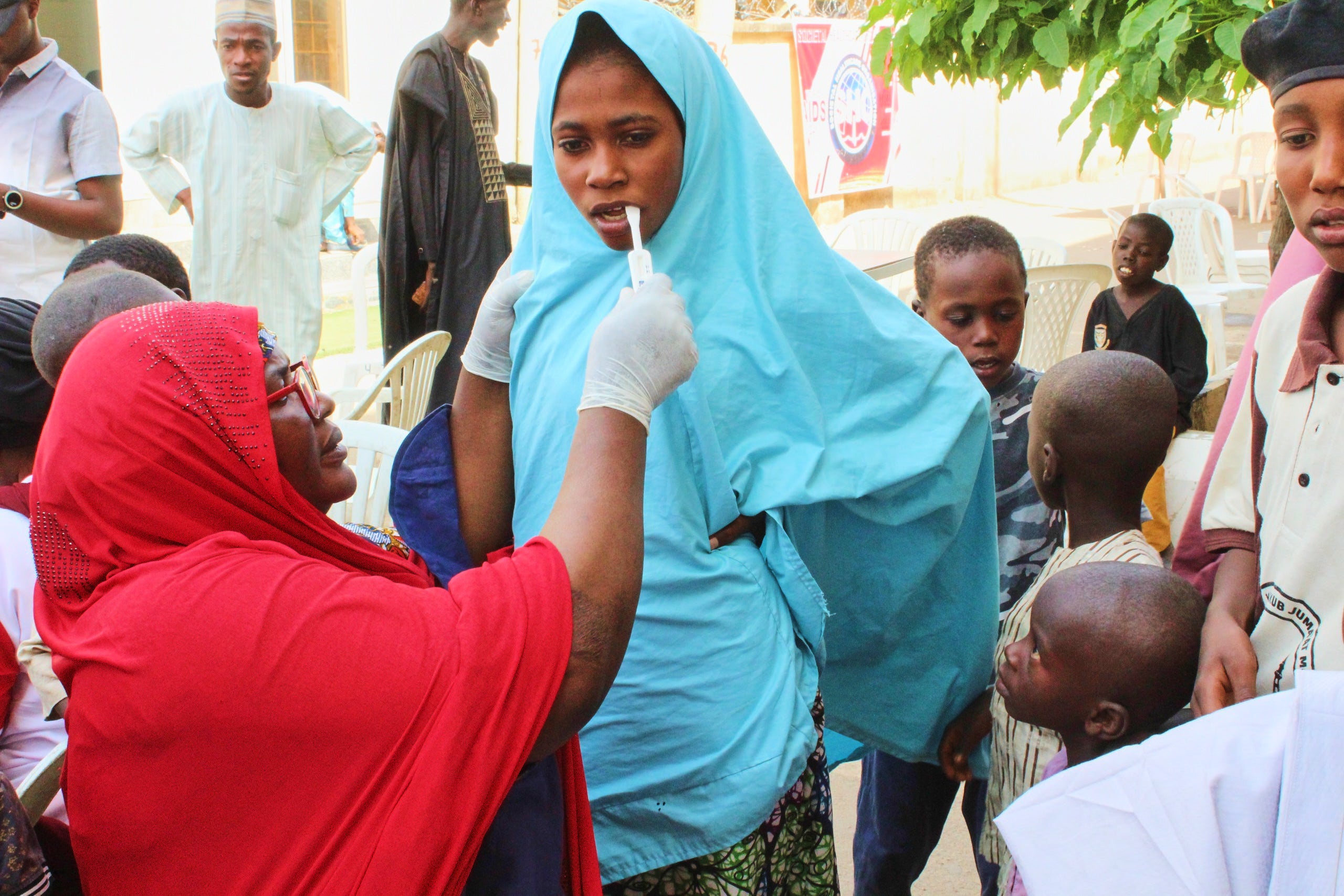On World AIDS Day, we reflect upon the enormous costs the HIV/AIDS epidemic has exacted throughout the world over the last four decades. We also celebrate the once unimaginable advances to prevent new HIV infections, treat those living with HIV, and ensure they enjoy a quality of life free of debilitating disability and discomfort.
However, the devastating COVID-19 pandemic reminds us of the threat a global health crisis of such magnitude poses to HIV/AIDS achievements to date by diverting attention, resources, and services. To protect these hard-fought gains, the global health community must recognize the importance of sustainability. We must collectively build and fortify resilient, equitable health systems to reduce persistent barriers. At the Center for Global Health Practice and Impact (CGHPI), we maintain this focus to ensure that those requiring HIV/AIDS services are reached and that health outcomes are optimized for all.
In Haiti, CGHPI partners with communities, people living with HIV (PLHIV), private sector partners, healthcare providers, and the Government of Haiti to implement innovative community-based drug dispensing points in select high-burden areas. Located at common touchpoints and organized in sustainable communities of practice, clients benefit from easier access to medication, individualized care, and integrated care coordination. This initiative has ensured uninterrupted delivery of services to PLHIV throughout the COVID-19 pandemic, despite ongoing security challenges.
CGHPI draws on its broad partnership framework in Cameroon to ensure comprehensive HIV service delivery to more than 115,000 PLHIV at 96 health facilities in the Center and East regions of the country. An early assessment of HIV and related services revealed gaps in quality of care, unusually high client interruption of care, and troublingly, low virologic suppression rates and preventable deaths among PLHIV. To address these gaps, we co-designed and co-implemented an intervention to improve case management and longitudinally monitor outcomes of clients receiving antiretroviral therapy in near-real time. The case management model strengthens family and community support systems by encouraging disclosure, while also providing integrated care services. Healthcare providers ensure every enrolled client has a tailored individual care plan and is supported to navigate the care system, and that care processes and healthcare outcomes are monitored with the aid of digital tools developed to monitor care delivery. Since its implementation, this model has led to optimal care outcomes and improved retention rates. The two regions are now on track to achieve HIV epidemic control goals two years ahead of target.
In Eswatini, CGHPI is implementing several initiatives covering HIV, TB, and related illnesses. In addition, we support system development and strengthening of cervical cancer screening and management at 74 health facilities in the Manzini and Lubombo regions of the country for more than 60,000 women aged 15-49 living with HIV. The initiative prioritizes women who live in distant rural areas and other harder-to-reach populations. To advance cervical care management, we have upskilled 12 physicians to carry out loop electrosurgical excision procedures, and have provided and installed equipment to support the treatment of the women who screen positive for precancerous lesions but are not eligible for cryotherapy. In addition, we support the Government of Eswatini to establish an efficient care network with fast-tracked referrals of eligible cases to tertiary care centers to ensure timely intervention.
On the outskirts of Nairobi City in Kiambu County, Kenya, CGHPI and its partners are working with adolescent and youth-led communities of practice to increase access to quality health and HIV services and to address socio-economic issues that impede adolescent and young people from achieving their desired health and educational outcomes. Anchored in human-centered design methods, Local Innovations Scaled Through Enterprise Networks (LISTEN) is an innovative process in which youth advocates are collaborating with key local stakeholders in the country to reach adolescents and young people living with HIV. Advocates offer prevention, care, and treatment services; mental health, gender-based violence, sexual and reproductive health information; and economic empowerment opportunities across several sectors beyond health. The program utilizes youth-led community outreaches, health clubs, social media, local radio and television stations, and a “living library” approach – the use of real-life stories for and by adolescents and young people living with HIV and teen mothers on the prevention of mother-to-child transmission of HIV – to support those in denial and experiencing stigma and discrimination.
As we commemorate this World AIDS Day, we renew our commitment to collaborate with our many dedicated partners to fortify and build upon hard-fought gains toward the ultimate goal of ending the HIV/AIDS epidemic in our lifetime.
Author: Dr. Deus Bazira
